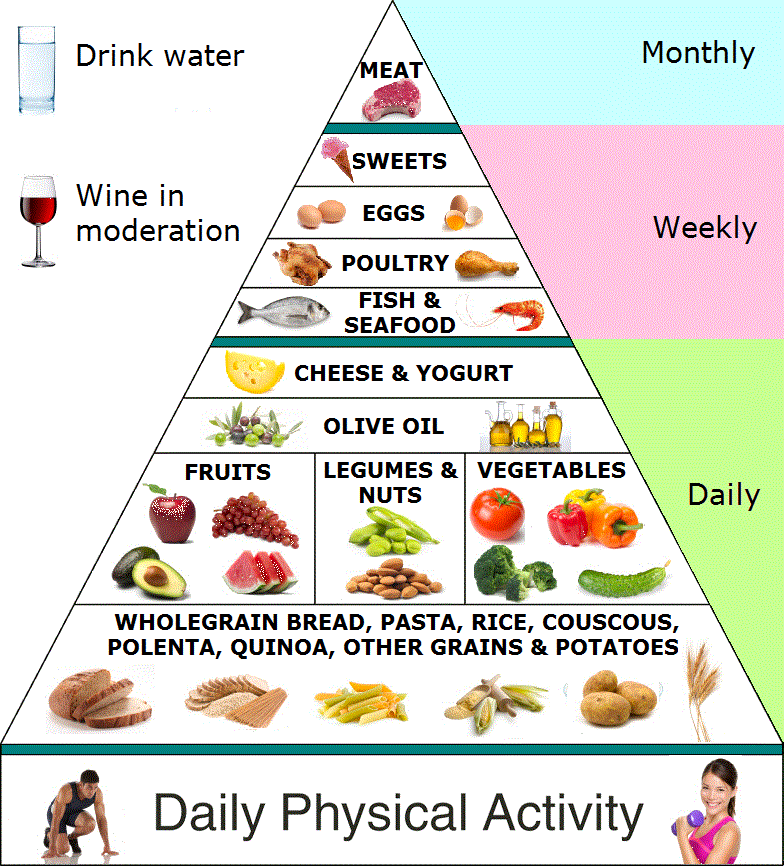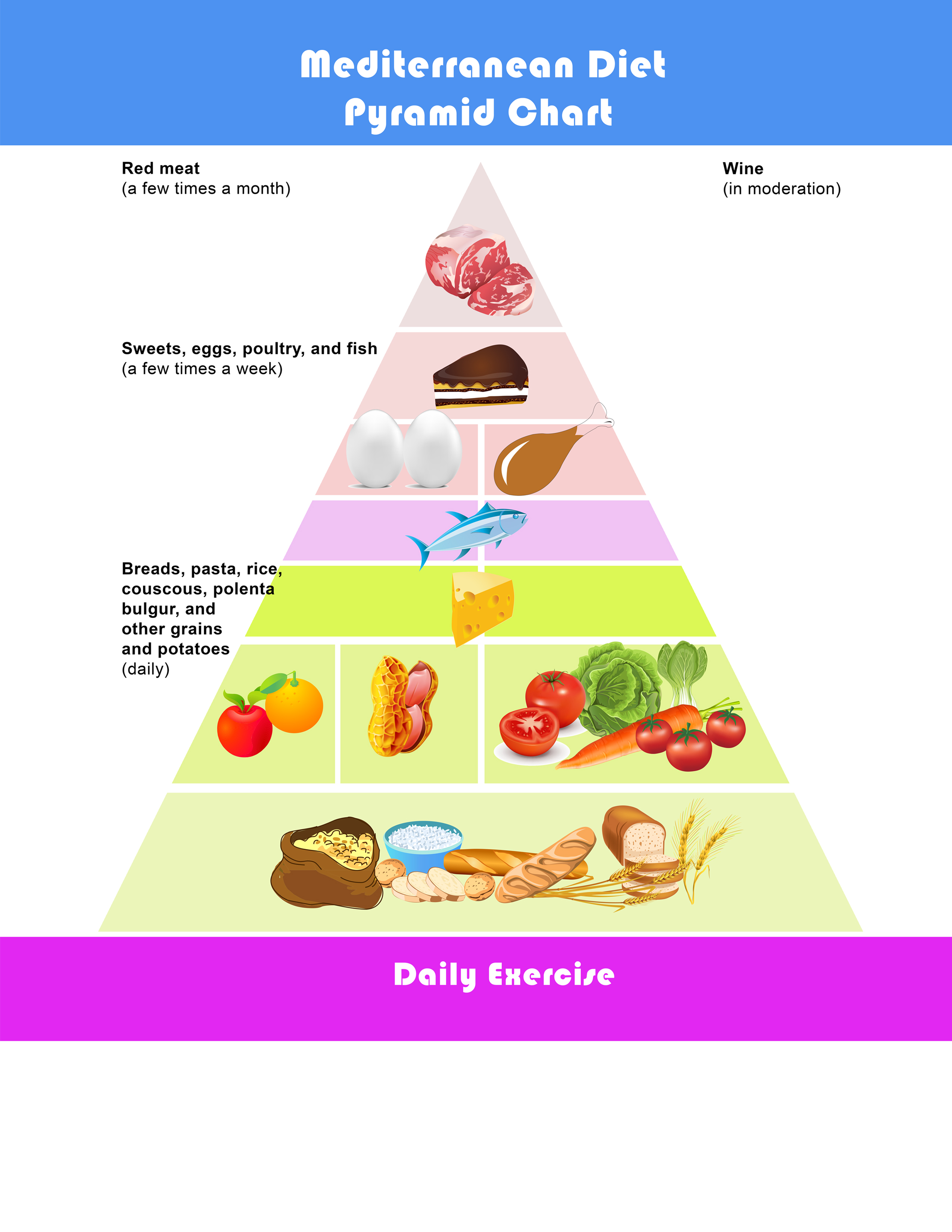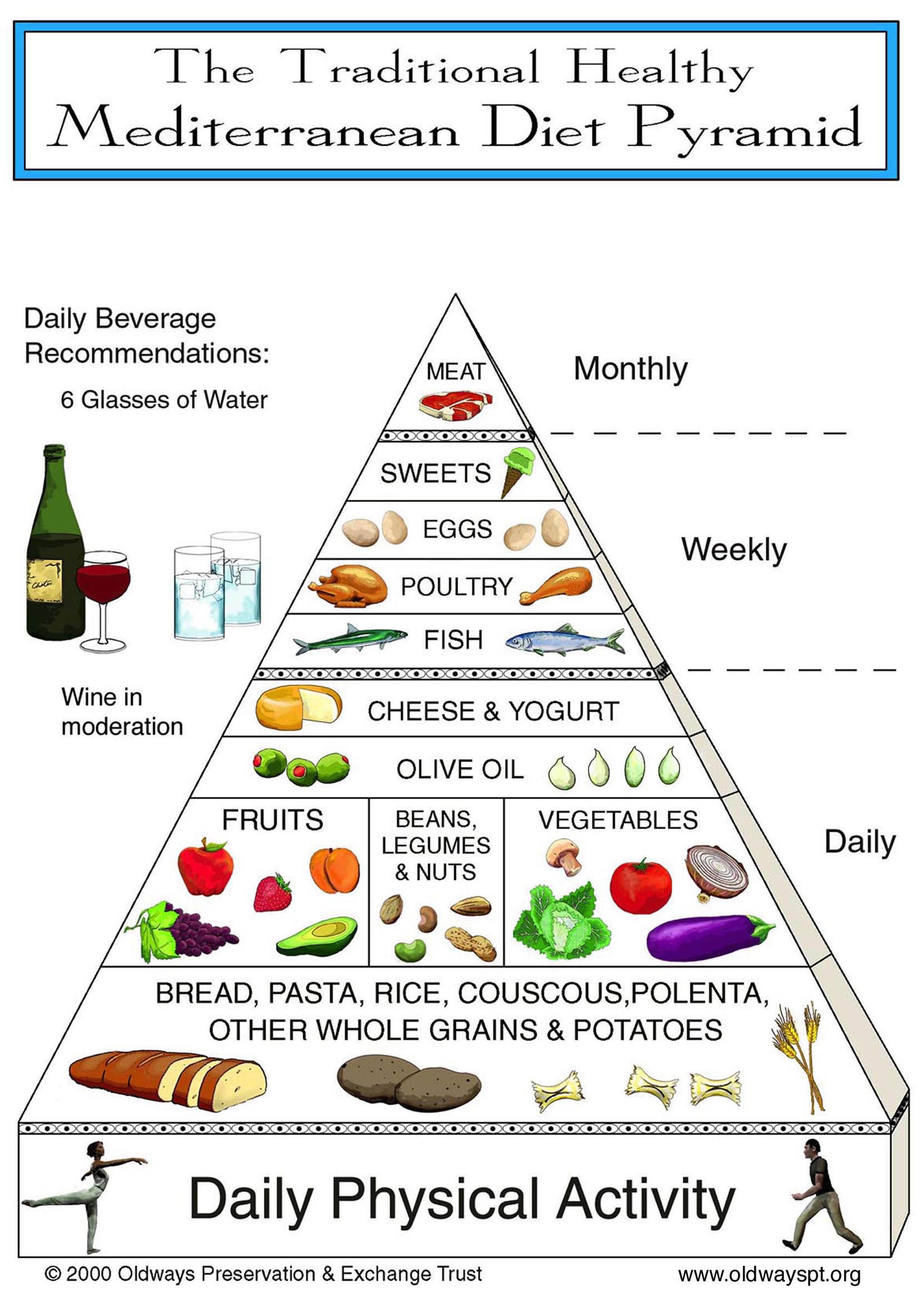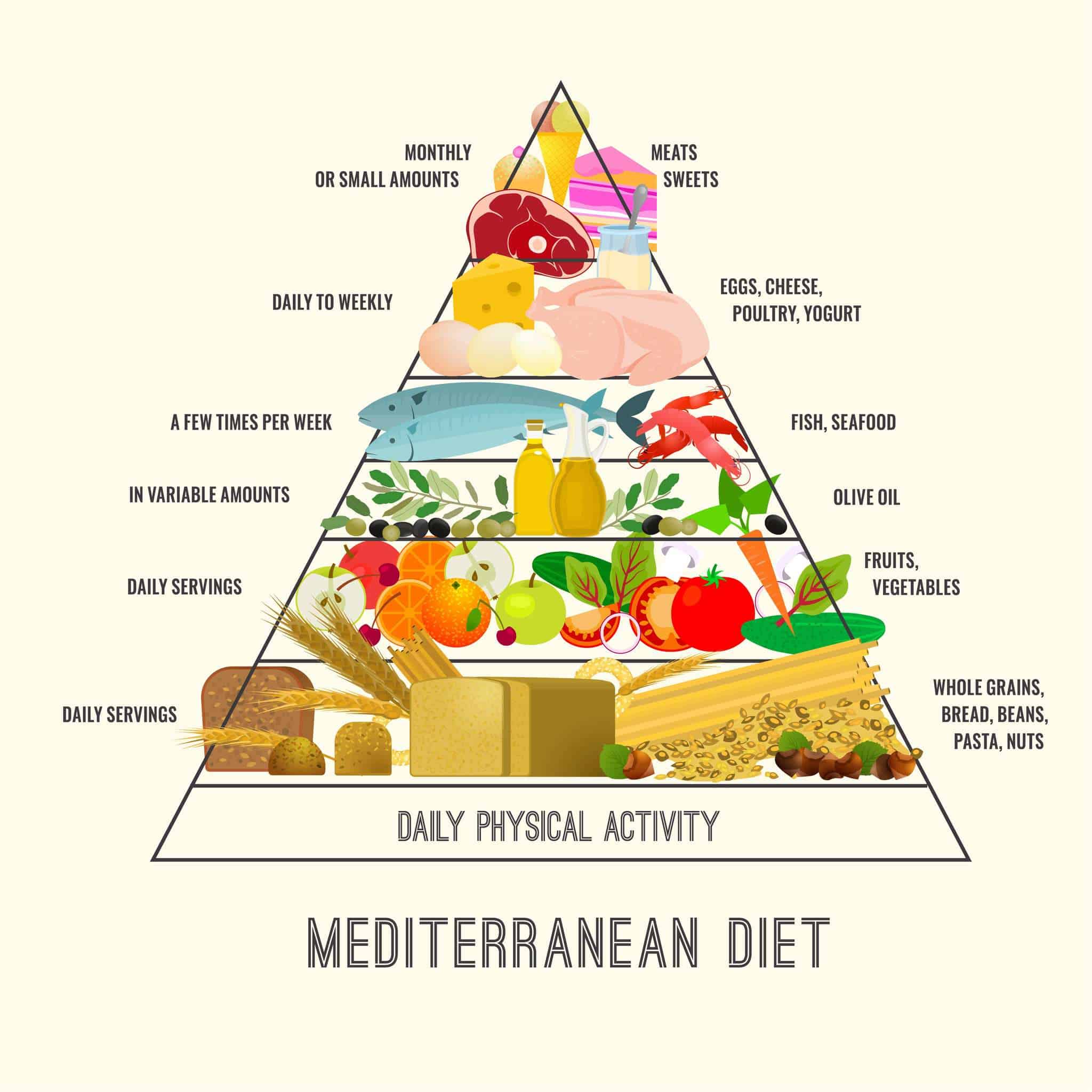The Mediterranean diet is a popular and highly regarded diet that promotes good health and well-being. It is not just a diet but a way of life that focuses on consuming fresh, wholesome foods. This diet originated in the Mediterranean region, where people have been following this eating pattern for centuries.
The Mediterranean Food Diet
 The Mediterranean food diet is based on the traditional eating patterns of people living in countries like Greece, Italy, and Spain. It emphasizes the consumption of fruits, vegetables, whole grains, legumes, nuts, and healthy fats like olive oil. The diet encourages moderate consumption of fish, poultry, and dairy products and limits the intake of red meat and processed foods.
The Mediterranean food diet is based on the traditional eating patterns of people living in countries like Greece, Italy, and Spain. It emphasizes the consumption of fruits, vegetables, whole grains, legumes, nuts, and healthy fats like olive oil. The diet encourages moderate consumption of fish, poultry, and dairy products and limits the intake of red meat and processed foods.
Mediterranean Diet Foods
 The Mediterranean diet includes a wide variety of foods that are rich in nutrients and offer numerous health benefits. Some of the key foods in the Mediterranean diet include:
The Mediterranean diet includes a wide variety of foods that are rich in nutrients and offer numerous health benefits. Some of the key foods in the Mediterranean diet include:
- Fresh fruits and vegetables: These are abundant in vitamins, minerals, fiber, and antioxidants. They provide essential nutrients and help reduce the risk of chronic diseases.
- Whole grains: Whole grains like whole wheat, brown rice, oats, and quinoa are a great source of fiber and provide sustained energy. They also help maintain a healthy weight and reduce the risk of heart disease.
- Legumes: Legumes such as beans, lentils, chickpeas, and peas are a rich source of protein, fiber, and vitamins. They are also low in fat and help maintain good digestive health.
- Nuts: Nuts like almonds, walnuts, and pistachios are packed with healthy fats, fiber, and antioxidants. They promote heart health and help control hunger cravings.
- Olive oil: Olive oil is a staple in the Mediterranean diet and is used as a primary fat source. It is rich in monounsaturated fats, which are beneficial for heart health.
Mediterranean Diet Menu
 The Mediterranean diet menu can be customized to your preferences and dietary needs. Here is a sample menu to give you an idea of what a Mediterranean diet day may look like:
The Mediterranean diet menu can be customized to your preferences and dietary needs. Here is a sample menu to give you an idea of what a Mediterranean diet day may look like:
Breakfast: Greek yogurt topped with fresh berries, a handful of nuts, and a drizzle of honey.
Lunch: Grilled chicken breast with a side of mixed greens, cherry tomatoes, cucumbers, and olives, dressed with olive oil and lemon juice.
Snack: Hummus with carrot sticks or whole-grain crackers.
Dinner: Baked salmon with roasted vegetables (such as zucchini, bell peppers, and eggplant) seasoned with herbs and served with a side of quinoa.
The Mediterranean Food Guide Chart
 The Mediterranean food guide chart provides a visual representation of the different food groups and their recommended proportions in the Mediterranean diet. The chart shows that the majority of the diet should consist of plant-based foods, such as fruits, vegetables, whole grains, and legumes.
The Mediterranean food guide chart provides a visual representation of the different food groups and their recommended proportions in the Mediterranean diet. The chart shows that the majority of the diet should consist of plant-based foods, such as fruits, vegetables, whole grains, and legumes.
It also suggests moderate consumption of fish, poultry, and dairy products, and a limited intake of red meat and processed foods. The chart serves as a helpful guide for individuals looking to adopt a Mediterranean diet and make informed food choices.
Health Benefits of the Mediterranean Diet
 The Mediterranean diet has been extensively studied and has been associated with numerous health benefits. Some of the key health benefits of this diet include:
The Mediterranean diet has been extensively studied and has been associated with numerous health benefits. Some of the key health benefits of this diet include:
- Reduced risk of heart disease: The Mediterranean diet is rich in heart-healthy foods like fruits, vegetables, whole grains, and olive oil. It helps lower LDL (bad) cholesterol levels, reduces blood pressure, and decreases the risk of heart disease.
- Weight management: Due to its focus on whole foods and portion control, the Mediterranean diet can help individuals maintain a healthy weight and reduce the risk of obesity.
- Improved brain health: The diet is rich in antioxidants and anti-inflammatory compounds, which help protect against cognitive decline and promote brain health.
- Lower risk of certain cancers: The Mediterranean diet includes a variety of plant-based foods that are high in antioxidants and protective compounds. This can help reduce the risk of certain types of cancers, including breast and colorectal cancer.
- Better blood sugar control: The Mediterranean diet promotes stable blood sugar levels and can be beneficial for individuals with diabetes or those at risk of developing the condition.
The Mediterranean diet offers a holistic approach to healthy eating and emphasizes the consumption of nutrient-dense foods. By following this diet, individuals can not only improve their physical health but also enjoy the rich flavors and culinary traditions of the Mediterranean region. Incorporating the Mediterranean diet into your lifestyle can be a positive step towards achieving long-term health and well-being.